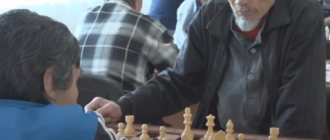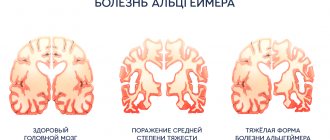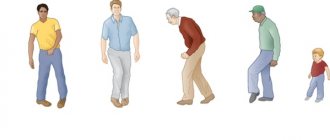One of the most common forms of dementia is Alzheimer's disease. An acquired neurodegenerative disease is characterized by the slow death of nerve cells and manifests itself as a persistent intellectual disorder. A person becomes unable to acquire new knowledge and skills, and also gradually loses previously acquired ones. In addition to memory impairment, problems arise with speech and spatial orientation. The patient loses the ability to care for himself, body functions go out.
When diagnosing, behavioral analysis, cognitive reactions, and MRI results are of great importance. Although a cure for Alzheimer's disease has not yet been found, there are ways to prevent its occurrence or reduce the severity of symptoms.
Causes of the disease
Doctors have not yet achieved a complete understanding of the cause of Alzheimer’s and the course of the disease. Apparently, the whole point is the accumulation of peculiar protein deposits in the brain tissue, which are recorded using computer, magnetic resonance and other types of tomography.
The main risk factor is old age. If under the age of 70 Alzheimer's disease is registered in three cases per 1000 people, then in 80-year-olds it is already up to 20 cases, and in 90-year-olds it is 70 cases per 1000 people. The disease is extremely rare in people under 60 years of age. Elderly women get sick more often than men.
Doctors attach great importance to genetic predisposition. A defective gene leading to the appearance of forms of proteins with neurotoxic properties was found in 50% of patients.
According to doctors, other reasons can serve as the impetus for the onset of the disease:
- brain injuries and concussions;
- psychological disorders;
- vascular problems;
- regular alcohol intake, nicotine addiction;
- obesity;
- low intellectual activity.
In patients diagnosed with Alzheimer's, after autopsy, so-called senile plaques are discovered - spherical extracellular foci of brain damage, which have negative consequences on the nervous system and brain functions.
Why does memory deteriorate?
Many people notice this - as you age, it becomes more difficult to remember where you left your keys or phone. First and last names that used to literally pop up in your head have to be “pulled out of your memory.”
Michael Yassy, a neurologist from Johns Hopkins University (USA), found that memory deterioration is associated with degradation processes in the hippocampus - this part of the temporal part of the brain carries out operational processing and storage of data. It is somewhat similar to RAM and hard drives of a computer: if necessary, a person searches for the necessary information in the brain “archive”.
As we age, it becomes more difficult for the brain to do this. This is not due to resource oversaturation, but to a decrease in the speed and efficiency of brain processes. Atherosclerosis of blood vessels causes deterioration of blood supply to brain tissue and death of brain cells.
Neurons in the nervous tissue die and are not restored. Michael Yassy also explains the tendency of older people to nostalgia and memories of youth for physiological reasons. It is easier for the brain to produce existing information than to process new information, especially short-term information. Therefore, with sclerosis, it is easier to remember Pushkin’s poems from the school curriculum than the stop at which you need to get off the bus.
Symptoms of Alzheimer's disease
Neither patients nor their loved ones can say exactly when the changes began. The person becomes forgetful and cannot remember individual words. The mood often changes, tearfulness and touchiness occur. Possible sleep disturbances. Poor night sleep gives way to daytime sleepiness.
The first symptoms of Alzheimer's over time are complemented by other manifestations:
- the circle of interests narrows, life becomes monotonous;
- lack of composure, confusion, suspiciousness, and uncertainty are manifested in everything;
- professional skills are lost;
- It becomes more and more difficult to perform everyday tasks;
- a person gets lost in the area, disoriented in space;
- degradation of thought processes occurs.
Visual dysfunction is added to acquired dementia. In the final stages, the sick person does not recognize loved ones, cannot eat, dress, or take care of himself.
Classification of the disease
Throughout the disease, a pattern of progressive disorders is observed. According to symptoms, there are four stages of Alzheimer's: predementia, early, moderate and severe. Slow degradation occurs over an average of 7 years, ending in the death of the patient.
Initial stage (pre-dementia)
The first manifestations of Alzheimer's disease, such as memory impairment and lack of concentration, are mistakenly perceived by relatives as manifestations of aging. Problems with the performance of everyday functions are still barely noticeable. It is typical that already at this time the person becomes apathetic, which persists throughout the disease.
Early stage
Memory continues to decline. The patient retains clear consciousness and high sensitivity, but the ability to normally perceive information is lost. For example, a person does not recognize or partially recognizes familiar faces. Or he cannot determine which objects in his environment have the same color. Clumsiness in performing daily tasks appears, fine motor skills are impaired. With some manipulations, the patient requires help, although he can still do many things on his own.
Moderate stage
The condition is worsening, as evidenced by obvious speech impairments. To replace a forgotten word, a person often selects the wrong words. Consistent movements are difficult. Most everyday tasks require significant effort. Psychiatric deviations appear, for example, the idea of vagrancy. Irritability can come and go quickly. Symptoms of delirium often occur. The person becomes whiny. It happens that he resists help. In order to smooth out the increase in general stress, relatives often move the sick person to a hospital for care.
Severe stage
At this stage, the patient cannot live without outside help. He is able to pronounce individual words and phrases, understands other people's speech and can show emotions. The condition is characterized as apathetic, exhausted. In the end, even small actions are impossible without the participation of others.
Based on its form, Alzheimer's disease is divided into presenile and senile. The first is a disease detected before age 65. The senile form refers to patients older than this age. Presenile dementia is characterized by rapid progression, family history, and rapid impairment of speech functions. The pace of progress depends on the standard of living, type of activity, heredity, and the presence of chronic diseases.
Senile dementia develops slowly at first. The first stages last 2-4 years. Temporary improvements in condition are characteristic. An elderly patient remembers the past perfectly, but does not perceive new knowledge. As it progresses, false memories arise, and people from the current environment are associated with people from their youth. There is no complete breakdown of speech. On the contrary, a sick person can speak vividly to the end and retain a rich vocabulary.
Treatment
Today, treatment for Alzheimer's disease is aimed at combating symptoms and improving the quality of life of patients.
It is important to start treatment in a timely manner!
Cholinesterase inhibitors. The following drugs are used to combat acetylcholine deficiency:
- acetylcholine precursors (citicoline, choline alfoscerate);
- promoting the release of acetylcholine in the synapse (ipidacrine);
- capable of enhancing the effect of acetylcholine (galantamine);
- blocking the breakdown of acetylcholine (rivastigmine, donepezil, galantamine, ipidacrine);
Memantine is the only drug recommended worldwide for the treatment of dementia due to Alzheimer's disease. Can be used for moderate to severe cases.
Cerebrolysin – believed to increase brain cell viability.
All drugs can have significant side effects and have strict contraindications, so the dosage regimen is selected individually by the doctor. It is also impossible to supplement the treatment regimen with nootropics in order to support the brain on your own.
Preventive actions
Preventive, that is, prophylactic measures, can slow down the development of the disease, but whether it can be prevented, scientists do not have a consensus.
To prevent Alzheimer's disease, it is recommended for older people to:
- lead an active life;
- be interested in new electronics;
- master the computer and use of gadgets;
- stimulate brain activity, read, find new hobbies.
Moderate physical exercise, especially outdoors, is very beneficial. At this time, the blood is saturated with oxygen, the brain structures begin to function better, which reduces the risk of vascular disorders.
When cardiovascular and pulmonary diseases are detected, it is important to treat them promptly. Normal organ function prevents the development of Alzheimer's type dementia.
Diagnostics
If you have any suspicions about the possible development of the disease, it is better to consult a doctor. He will assess the situation and, if necessary, prescribe tests and studies:
- Blood – general, detailed, for the Wasserman reaction and HIV;
- Electrocardiogram;
- Thyroid gland.
This makes it possible to exclude the possibility of illnesses with similar symptoms and to obtain an overall picture of the patient’s health status. An older person may be referred for an MRI, cerebrospinal fluid examination, etc. For a general assessment, a variety of neuropsychological tests are suggested. During the examination, information about previous injuries and illnesses is also collected.
Treatment and patient care
Therapy for Alzheimer's disease includes a set of measures, including drug treatment, psychosocial correction, and patient care.
There are no medications that can cure the disease. To treat cognitive impairment, doctors prescribe chemicals from the group of inhibitors that can delay the course of physiological processes in the body, as well as NMDA receptor antagonists, designed to reduce the manifestation of negative symptoms.
Behavioral correction involves the use of art therapy, music therapy, communication with animals and stimulation of any type of activity in the patient. The goal is to improve the patient’s quality of life.
No care is required at first. We are talking only about help in performing certain functions, possible tips. Relatives cope with this successfully. But in the last stages of Alzheimer's disease, the patient requires complete care. If relatives do not have the opportunity to constantly be with the patient, a nurse is hired for these purposes. Many people choose help from specialized institutions.
A good example is the private boarding house “Idyll” in Yekaterinburg. The cost of the stay is comparable to the pension of many patients. The institution employs doctors and medical staff who are well acquainted with the specifics of diseases such as Alzheimer's disease. Elderly people are provided with 24-hour care. Restorative and cultural events are being carried out.
Signs of early sclerosis
The first symptoms of age-related forgetfulness
- people don’t remember where they left things that they use regularly (glasses, keys, wallet);
- they confuse close people, for example, by calling their grandson after their son;
- forget about planned events;
- there are problems with memorization, patients do not remember what they just read, or the details of a recent conversation.
- upon entering the room, they forget why they came;
- are easily distracted and do not remember where they stopped;
- remember information incorrectly
People with age-related forgetfulness do not have memory lapses, intelligence or abstract thinking are not reduced.
Alzheimer's disease
Alzheimer's disease is a disease that causes severe memory impairment due to severe sclerosis of the brain. In the last 20 years, this disease has become younger and is diagnosed even at 50 years of age. It has been noticed that the younger the patient, the more severe the disease.
Pick's disease
The symptoms that occur with Pick's disease, which manifests itself at 50–60 years of age and causes the rapid development of senile dementia, are also similar to this disease:
- The person is unable to perform simple tasks (pay bills, get dressed, wash dishes). He may get lost in the city where he has lived for many years, unable to find an apartment or house.
- The patient does not remember the memory lapses, nor does he remember what happened a day or two ago. Sometimes false memories arise - confabulations. The patient replaces real events with fictitious ones.
- The man speaks, finding words with difficulty. Sometimes he replaces some concepts with others, and may repeat the same phrase several times in a conversation.
- Patients become socially inappropriate - they forget to wash, eat, clean the apartment, and have difficulty recognizing their relatives.
- Gradually, a person stops remembering words, emotions become scarce, motor activity decreases, and indifference appears.
There is no effective treatment for Pick's and Alzheimer's diseases, but with the help of symptomatic therapy, degenerative processes can be slowed down and the lives of patients can be improved. People with severe sclerosis and dementia need constant care and control.
The Best Clinic employs highly qualified neurologists who have extensive experience in the treatment and prevention of age-related forgetfulness. Contact us, we will help!










